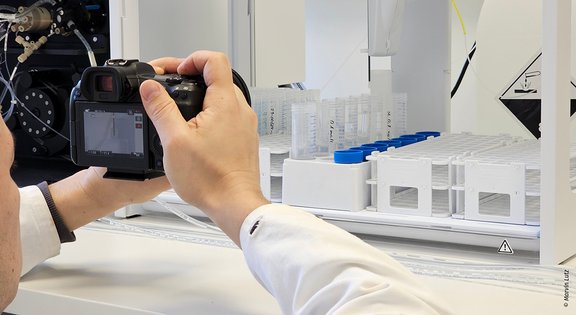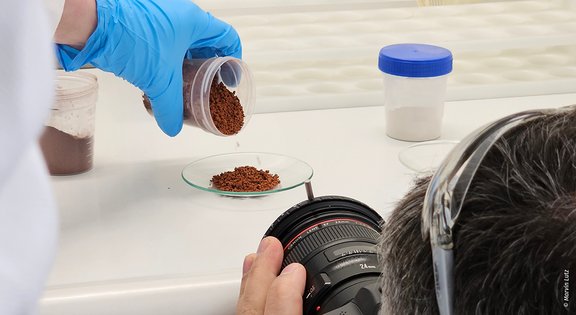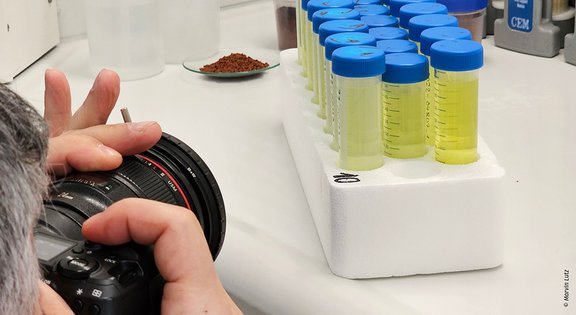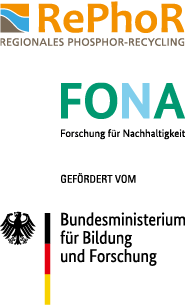What seems simple enough is not quite as easy to present visually in less than 5 minutes running time. With a great team of motion design and video production company, FiW created a short film in the context of its activity as transfer project TransPhoR, which should bring the background of phosphorus recycling in Germany closer to the general public. The aim was to increase awareness and understanding of this currently little-known topic. The filming took place in the spring under perfect weather conditions with kind permission of the Wasserverband Eifel-Rur (WVER) and the Institute of Environmental Engineering (ISA) of RWTH Aachen University on the grounds of the Soers wastewater treatment plant and in the laboratory of the ISA.
Phosphorus is an essential and non-substitutable building block in all living things and is needed primarily as fertilizer for high-yield agriculture. The finite phosphate ore reserves are limited to a few, partly politically unstable regions in the world and are increasingly contaminated. Germany, as well as almost all countries of the European Union (EU), has no raw phosphate deposits of its own and is therefore completely dependent on imports. This leads to major risks in terms of security of supply and vulnerability to price fluctuations. Phosphorus was therefore placed on the list of critical raw materials by the EU back in 2014, which is intended to provide an incentive for recycling activities. The recovery of phosphorus from P-rich waste streams, such as wastewater and sewage sludge, plays an important role in securing future supplies.
Within the framework of the BMBF-funded measure Regional Phosphorus Recycling (RePhoR), large-scale recovery is therefore being implemented and supported in seven joint projects. Various obstacles hamper the market entry of fertilizer recyclates. These include inconsistent or unclear legal regulations on pollutant limits, the certification process, but also factors such as the social acceptance of new products.









